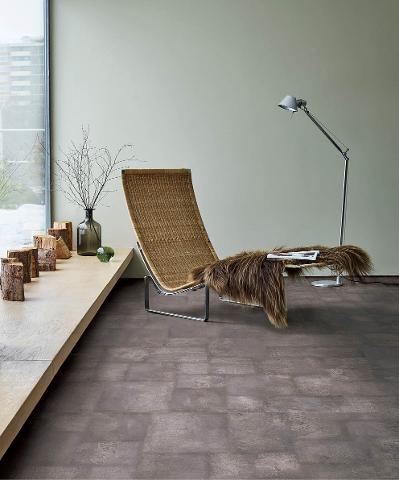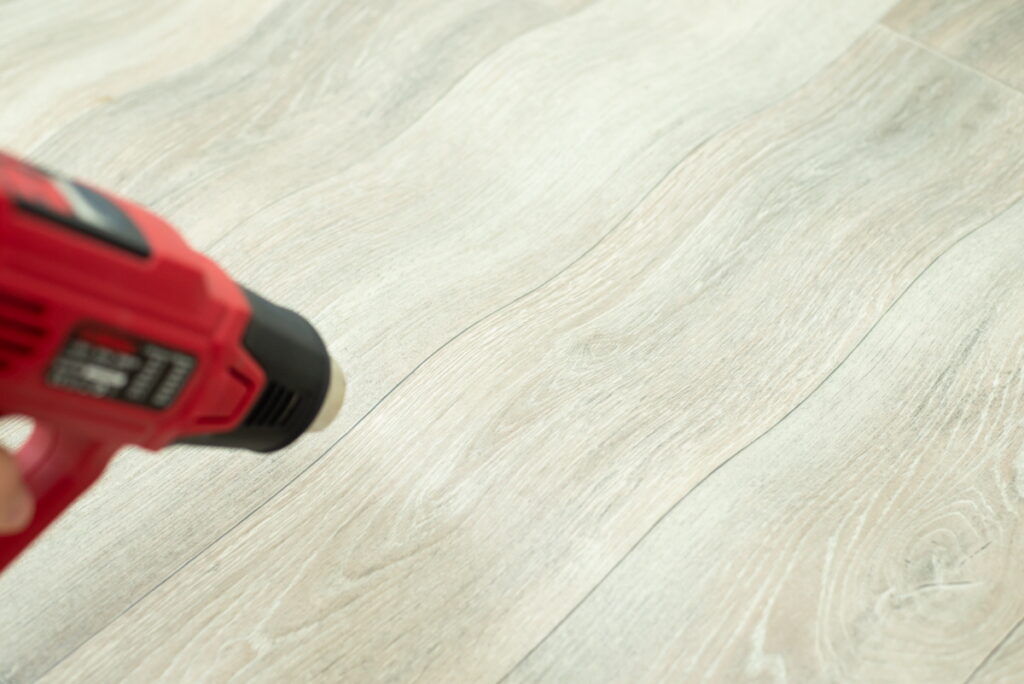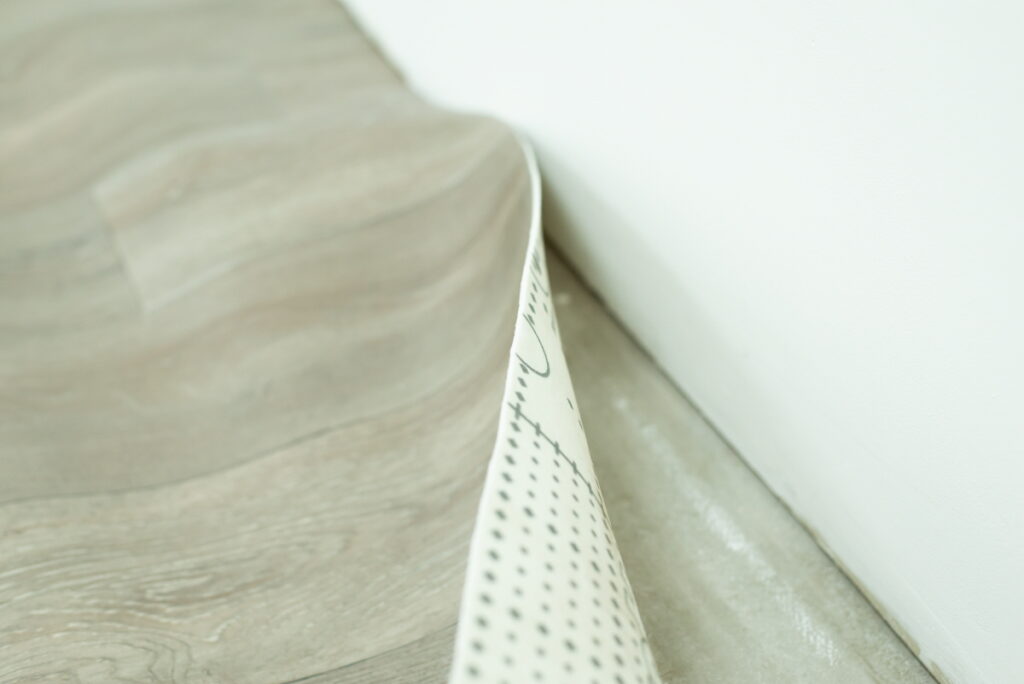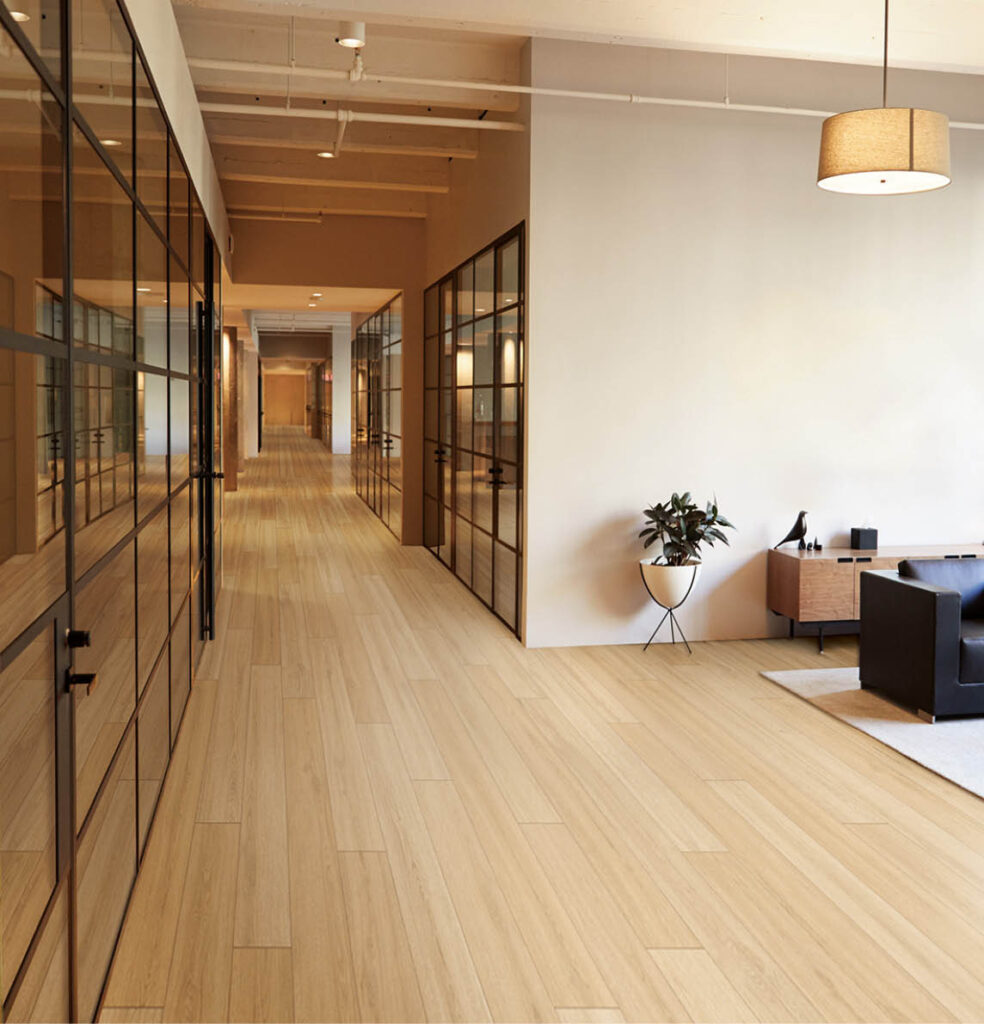
When you’re searching for the best flooring option for your home, there are numerous things to consider — from affordability to design to maintenance. There are also many flooring materials to choose from, including vinyl flooring. Vinyl flooring is durable, affordable, and easy to clean and maintain. You can explore more vinyl benefits and learn more about these advantages here.
However, you should be aware of several drawbacks to using vinyl flooring when making your decision. This article will discuss five disadvantages of using vinyl flooring, including:
1. Cannot be repaired
2. Can emit volatile organic compounds
3. Shorter lifespan than wood floors
4. Difficult to remove, especially if adhesive is used during installation
5. Not eco-friendly; challenging to recycle
Cannot be repaired

When damaged, vinyl flooring is extremely difficult to repair. Often, the only option to fix a vinyl floor is to replace it. This is especially true for sheet vinyl flooring. A less costly alternative can be to patch the damaged area by removing and replacing it with a new section. However, this has its drawbacks. One of the significant advantages of vinyl flooring is that it is waterproof; patching the flooring will create seams allowing water to permeate it. A patch will also only match the pattern of the original floor if cut along the existing pattern lines, which is easier said than done.
Can emit volatile organic compounds
For a short time after installation, vinyl flooring emits what is known as volatile organic compounds, or VOCs. These are gasses that can have a long-term impact on your health and are also dangerous for the environment. They can be especially hazardous to those with respiratory problems. Some common symptoms include headaches, dizziness, eye itchiness, or respiratory tract irritation when exposed for just short periods of time. Prolonged exposure can result in asthma, respiratory allergies, and other serious lung problems. To reduce gasses in the home, open doors and windows to keep your rooms well ventilated. The effects of VOCs can be further minimized by choosing a low-VOC floor.
Difficult to remove, especially if adhesive is used during installation

Vinyl flooring is often glued to ensure it stays in the right place when moving furniture and other things around. When installed this way, the flooring becomes difficult to remove because you will have to carefully pry the planks or sheets from the subfloor so they stay fully intact. Removing vinyl flooring is a very time-consuming process, whether it is done by you or a professional. To avoid the complex removal process, choose a vinyl flooring that doesn’t require glue or heavy adhesives. Look for vinyl floors that install as floating floors instead; this type of flooring locks or clicks in place to prevent it from moving around.
Not eco-friendly; difficult to recycle
In a world where builders, designers, and homeowners are increasingly focused on sustainable building materials and practices, vinyl flooring could be more eco-friendly. Vinyl floors are often made using toxic chemicals that can damage the environment, including the volatile organic chemicals discussed earlier. Vinyl floors include polyvinyl chloride, or PVC, used in many other objects within your home, including siding and window frames, pipes, and wall coverings. PVC prevents the flooring from breaking down and decomposing in order for it to maintain its quality. Many recyclers will only take used vinyl flooring if they can make a significant profit from it, which is difficult to do, making vinyl recycling even more challenging.
Excellent qualities of vinyl flooring depending on what brand you choose

The only way to decide if vinyl is the right choice for you is by weighing its benefits and drawbacks. While there are several disadvantages to using vinyl flooring, these may be outweighed by the advantages. For example, while vinyl flooring has a relatively shorter lifespan than natural materials, such as wood, it is also significantly cheaper. If you haven’t already, check out our complete list of vinyl flooring benefits and advantages here.
To minimize the drawbacks or adverse effects of vinyl flooring, pay attention to the brand, manufacturer, and quality. Choosing high-quality vinyl flooring is essential when deciding between the many options out there, as it can significantly impact the lifespan and durability of your floor. LX Hausys‘ HFLOR Luxury Vinyl Tile (LVT) offers many high-end natural-looking wood and fine stone finishes that would look stunning in your home. HFLOR’s LVT collection offers incredible freedom and creativity both in terms of design capabilities and installation methods.
Contact us
If you are considering vinyl flooring for your home, let’s talk. We’re excited to discuss your flooring needs, questions, or concerns. Visit our site, fill out a form, and one of our experts will reply to you quickly at the email you provide.
